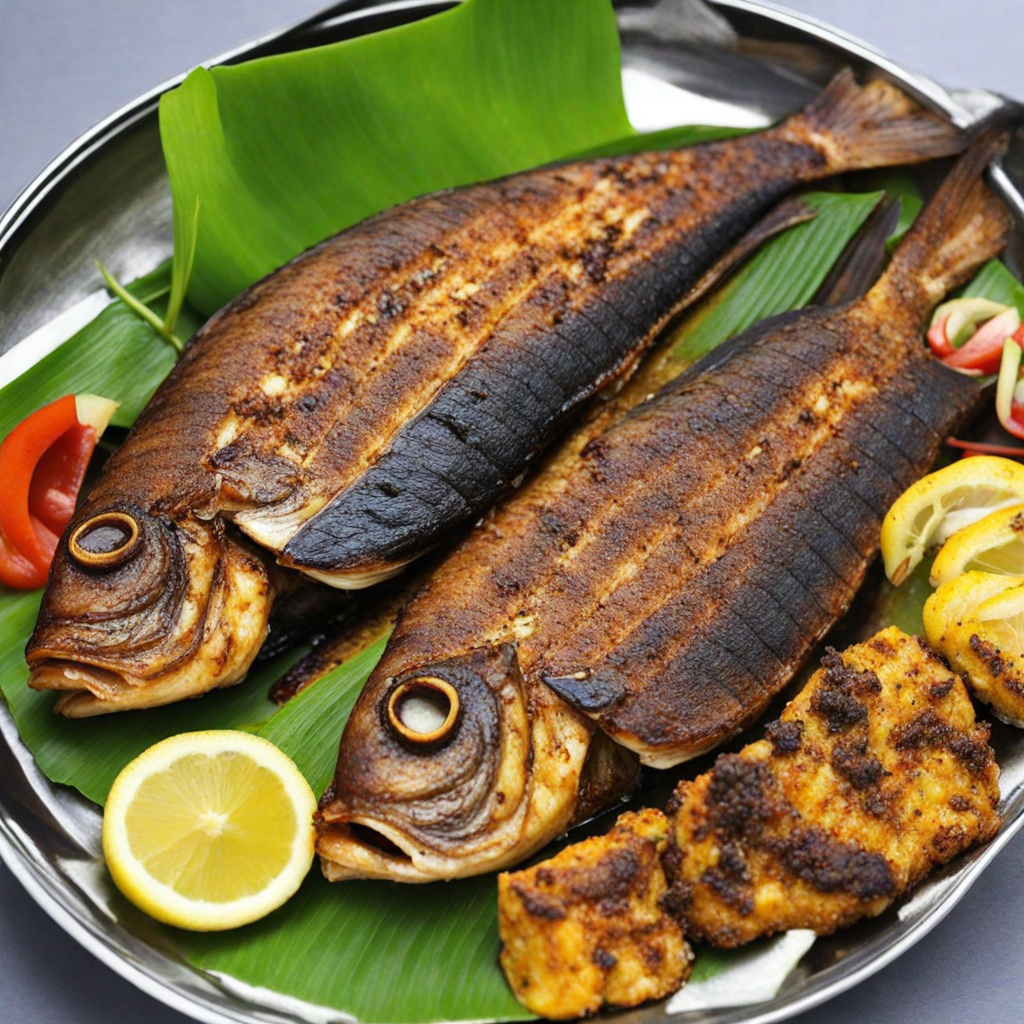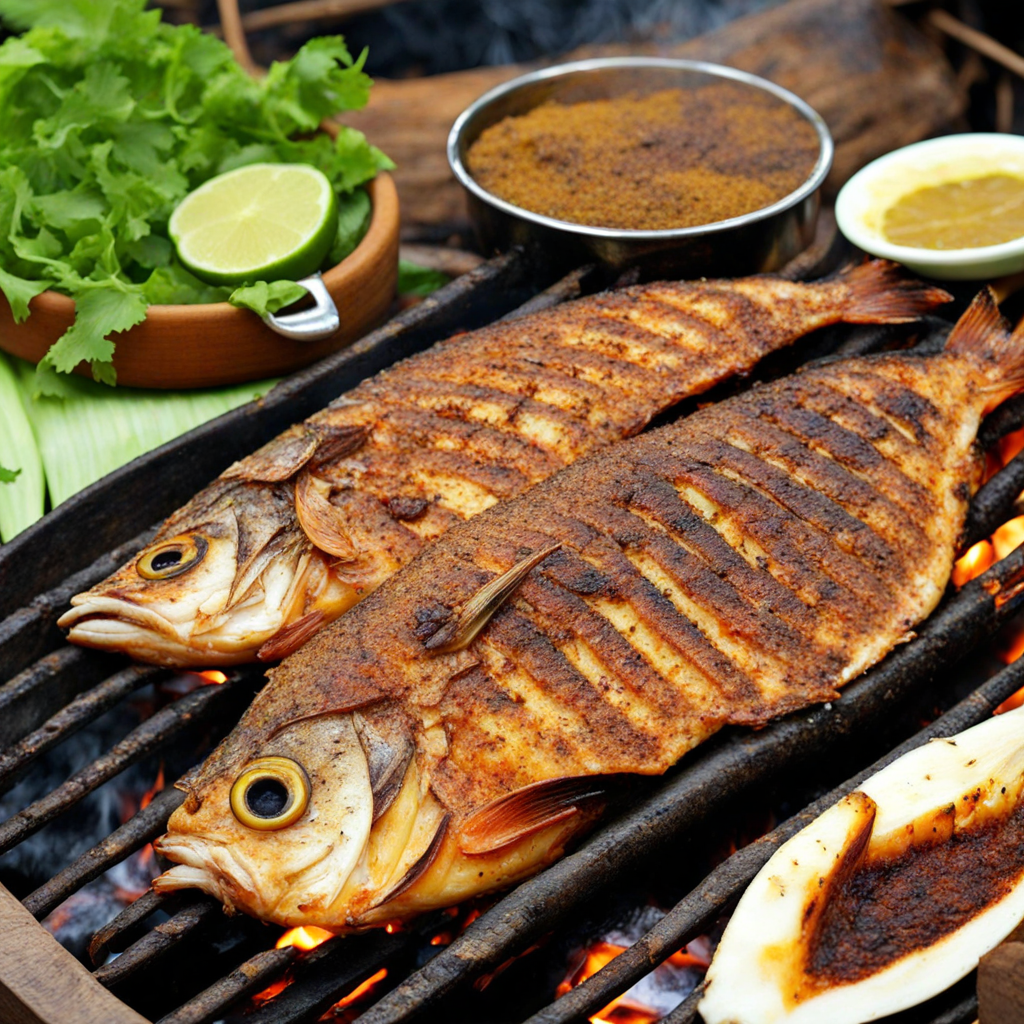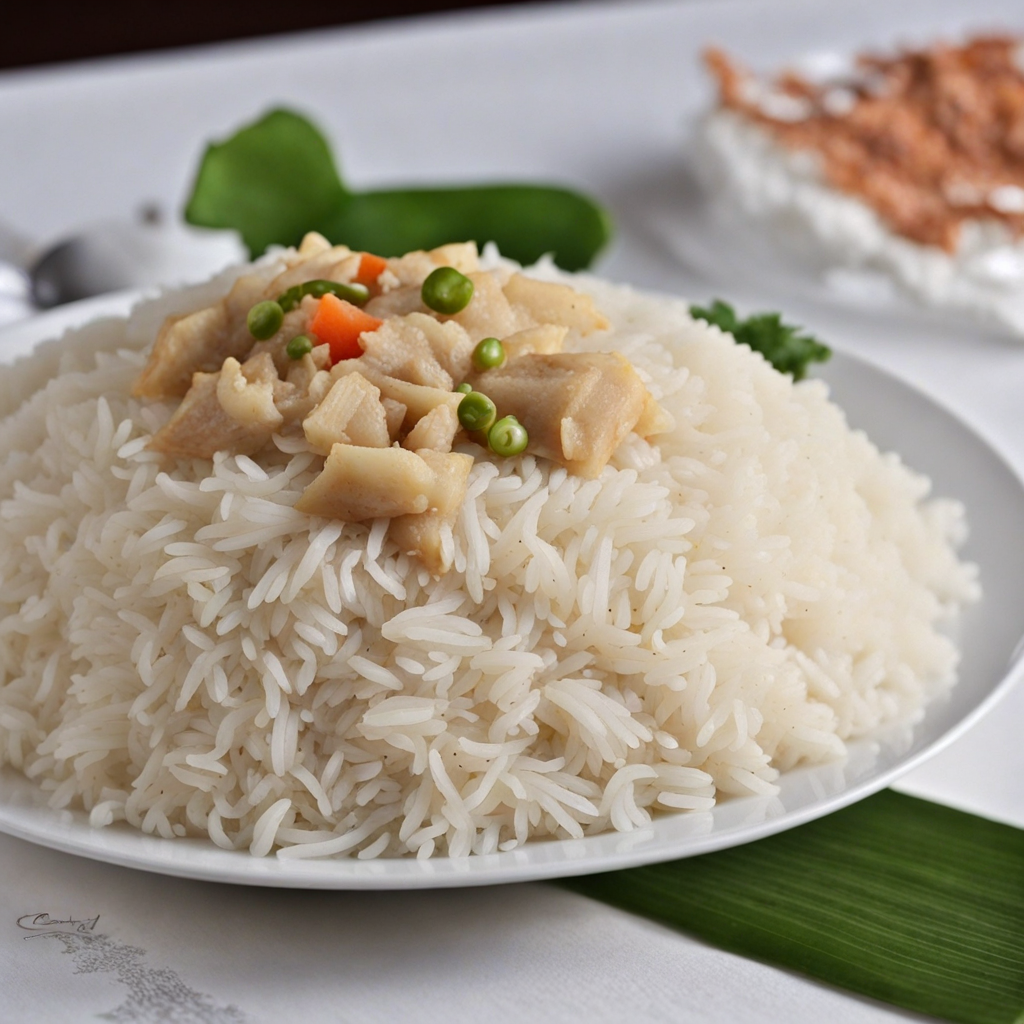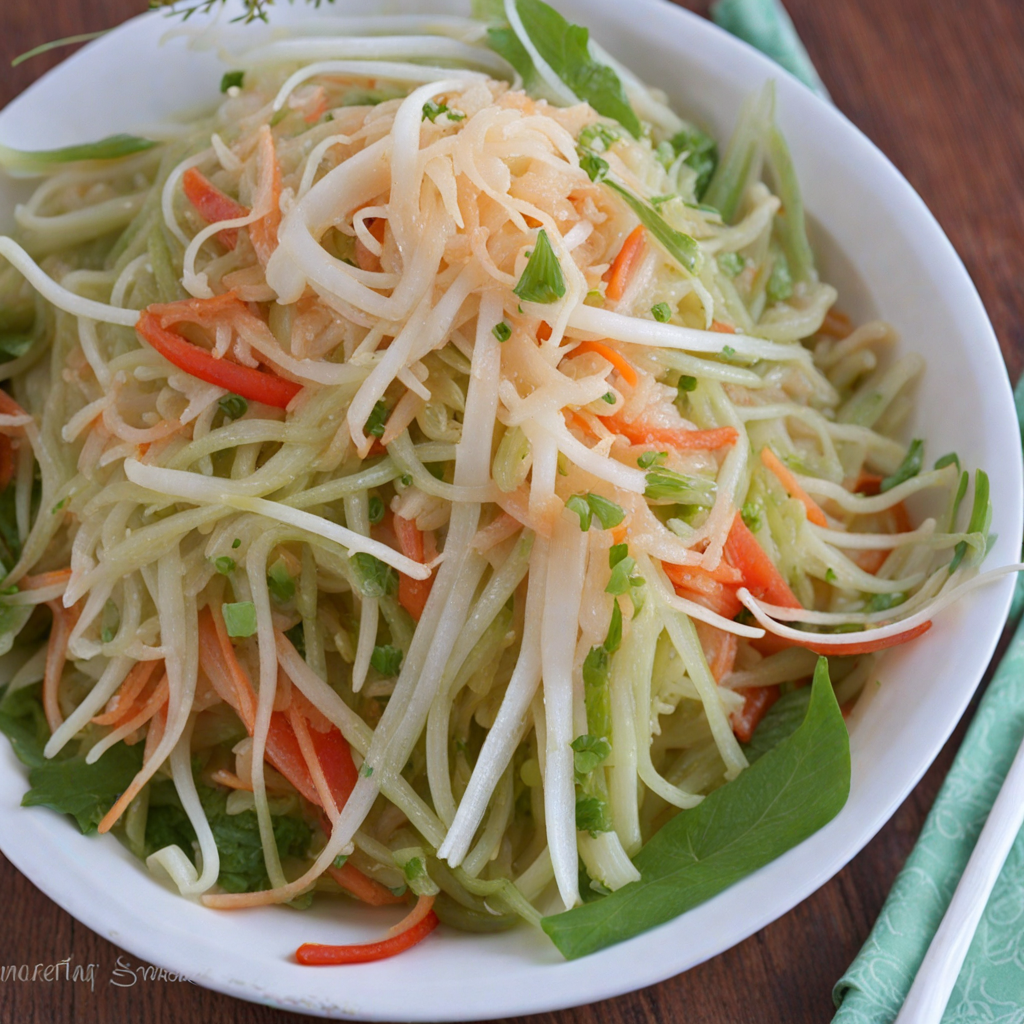Grilled Fish
Grilled fish from the Comoros is a culinary delight that showcases the island's bountiful marine resources. The fish is typically marinated in a blend of local spices, including garlic, ginger, and a hint of chili, which not only enhances its natural flavors but also infuses it with a vibrant aroma. The marinade often includes fresh lime or lemon juice, adding a zesty brightness that complements the richness of the fish. The grilling process brings out a smoky depth, creating a beautiful char on the outside while keeping the flesh tender and moist within. What sets Comorian grilled fish apart is the use of traditional cooking techniques that involve grilling over open flames, often using wood from local trees. This method imparts a unique flavor that cannot be replicated by modern grilling methods. The fish is usually served whole, garnished with fresh herbs, and accompanied by a side of coconut rice or a tangy vegetable salad, which balances the richness of the fish. The vibrant colors and textures of the dish make it not only a feast for the palate but also a visual delight. Dining on grilled fish in the Comoros is not just about the food; it is an experience that reflects the island's rich culture and connection to the sea. Families often come together around a shared platter, celebrating the flavors and traditions passed down through generations. Each bite is a taste of the ocean, infused with the spirit of Comorian hospitality, making grilled fish a must-try for anyone looking to explore the diverse and delicious cuisine of this beautiful archipelago.
How It Became This Dish
The Engaging History of Poisson Grillé from Comoros #### Origins of Poisson Grillé Poisson Grillé, or grilled fish, is a quintessential dish in Comorian cuisine that reflects the archipelago's rich maritime heritage and cultural tapestry. The Comoros, an island nation located in the Indian Ocean, consists of four main islands: Grande Comore, Mohéli, Anjouan, and Mayotte. Each island has its unique culinary traditions, but they all share a common appreciation for the ocean's bounty. The origins of Poisson Grillé can be traced back to the indigenous Swahili culture that has inhabited the region for centuries. The Swahili people, known for their seafaring skills, relied heavily on fishing as a primary economic activity. They developed techniques for catching fish using traditional methods such as nets and traps, which were often made from locally sourced materials. The abundance of fish around the islands, including species like tuna, snapper, and grouper, made seafood a staple in the Comorian diet. The grilling of fish is believed to have been influenced by various cultural exchanges that occurred over the centuries. The Comoros were a hub for trade between Africa, the Middle East, and Asia, leading to the adoption of culinary practices from these regions. The Arab traders, who arrived as early as the 7th century, introduced various spices and cooking methods, including grilling. This melding of influences gave rise to the distinct flavors and preparation methods associated with Poisson Grillé today. #### Cultural Significance In Comorian culture, Poisson Grillé is more than just a meal; it is a symbol of community and tradition. Fish grilling is often a communal activity, bringing families and friends together, especially during festive occasions or gatherings. The preparation of Poisson Grillé is typically accompanied by lively conversations, music, and storytelling, reinforcing social bonds and cultural identity. Moreover, the dish holds spiritual significance. In many Comorian households, the preparation and sharing of food are seen as acts of gratitude to the sea and its resources. Fishermen often offer prayers and thanks before setting out to sea, recognizing the sacred relationship between their livelihoods and the ocean. This reverence for nature is reflected in the way Poisson Grillé is prepared—using fresh, locally sourced ingredients and traditional methods that honor the environment. Poisson Grillé also plays a role in the country's culinary festivals, such as the Comoros Festival, where local chefs showcase their skills. These events celebrate not only the dish itself but also the cultural heritage of the Comoros, attracting visitors and fostering tourism. The grilling of fish is often accompanied by local side dishes, such as coconut rice, banana, and various vegetable salads, making it a multifaceted culinary experience. #### Preparation and Ingredients The preparation of Poisson Grillé involves several key elements that highlight the natural flavors of the fish. Traditionally, whole fish is marinated with a blend of spices, including garlic, ginger, lime, and local herbs like thyme and coriander. The use of coconut milk, a staple in Comorian cooking, adds richness and depth to the marinade. This infusion of flavors allows the fish to absorb the aromatic profiles, creating a dish that is both fragrant and delicious. Once marinated, the fish is skewered or placed directly on a grill over an open flame, often made from locally sourced wood. This method of cooking imparts a distinct smoky flavor that complements the freshness of the fish. Grilling is also seen as a healthier cooking method, as it allows excess fats to drip away while retaining the fish's natural juices. As time progressed, the dish has evolved to incorporate modern techniques and ingredients, while still retaining its traditional roots. Some chefs now experiment with different marinades and grilling methods, such as using charcoal grills or even incorporating fusion elements inspired by global cuisines. However, the essence of Poisson Grillé remains consistent—a celebration of fresh fish, community, and the island's culinary heritage. #### Development Over Time The development of Poisson Grillé over the centuries can be seen as a reflection of the changes in Comorian society and its increasing interaction with the outside world. In the colonial era, Comoros was influenced by European culinary practices, which introduced new ingredients and cooking techniques. While these influences were often met with resistance, they also provided opportunities for culinary innovation. In recent decades, globalization has further affected Comorian cuisine, with the introduction of international flavors and cooking styles. As tourism has grown, so too has the interest in local dishes like Poisson Grillé. Restaurants and hotels often feature this dish on their menus, attracting a diverse clientele eager to experience authentic Comorian flavors. This exposure has led to a revival of interest in traditional recipes and cooking methods, fostering a sense of pride among Comorians in their culinary heritage. Social media and food blogs have also played a significant role in promoting Poisson Grillé beyond the borders of Comoros. Food enthusiasts and travelers share their experiences, showcasing the dish's vibrant colors and tantalizing aromas, which have contributed to its rising popularity. This has encouraged a new generation of chefs to explore and reinterpret traditional recipes, ensuring that Poisson Grillé remains relevant in the modern culinary landscape. #### Conclusion The history of Poisson Grillé in Comoros is a rich tapestry woven from the threads of tradition, community, and cultural exchange. From its origins in the fishing practices of the Swahili people to its contemporary status as a beloved dish, Poisson Grillé embodies the spirit of the Comorian islands. Its preparation and consumption serve as a reminder of the deep connection between the people of Comoros and the sea, as well as the enduring significance of food as a medium for cultural expression. As the world continues to change, Poisson Grillé stands as a testament to the resilience of Comorian culinary traditions. It reflects both the island's heritage and its adaptation to new influences, ensuring that this beloved dish will continue to be enjoyed for generations to come. Whether savored on the shores of the Comoros or experienced in far-off lands, Poisson Grillé remains a delicious symbol of the islands' rich cultural identity.
You may like
Discover local flavors from Comoros







